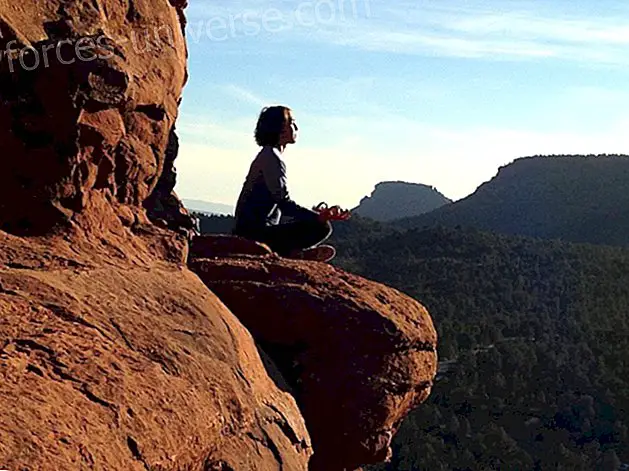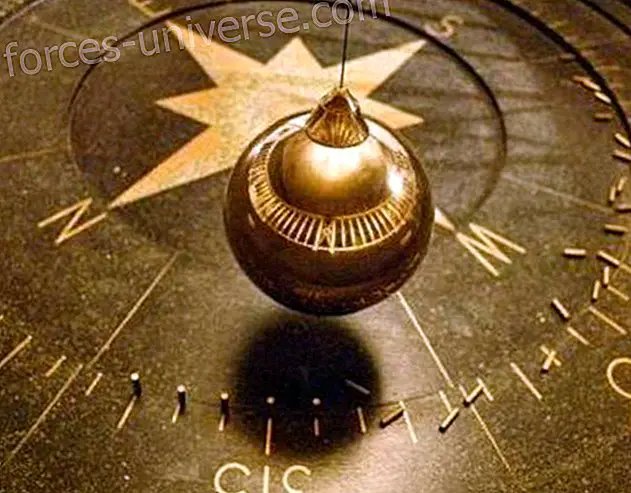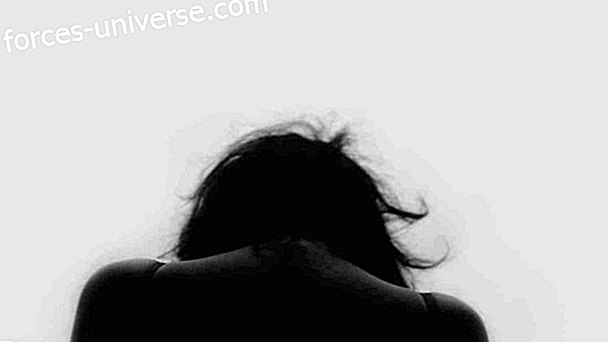There is much talk, and with good reason, of the need we all have to heal and be healed . Healing, or the idea of healing, evokes all notions of peace, well-being, harmony with nature, understanding of God or our essential being (as we prefer to call it), good relationship with other human beings, and more.
So high value, to become healthy (or as healthy as we can), has resulted in venerable people, from all cultures and all ages, have dedicated themselves with all their efforts and ability to the beautiful task of learning to cure, heal and improve the quality of life of their peers. Thus, since ancient times, since practically prehistoric times, we hear about healers and healing . This concept has then been extended to that of therapists, doctors, and the like.
But ... what is healing and being healed ?, and if it is such a good thing, how is it achieved?
First, before addressing those valuable questions, let's answer another: who needs to heal?
For our time, and in many countries, it has been established by custom to say that those who need to heal are sick people.
This, while relatively true, is not what the meaning of that word points to. Since healing means healing or regaining health .
Health, (from Latin salus, -utis) “ is a state of well-being or equilibrium that can be seen at the subjective level (a human being assumes as acceptable the general state in which he is) or at the objective level (it is noted the absence of diseases or harmful factors in the subject in question) ” .
That is, although objectively the word disease refers to the opposite of health, health, also refers, also, to a state seen at the subjective level. It means that virtues such as happiness, joy, enthusiasm, serenity and many others, are also components what we call human health.
The latter is true to such an extent, that it is sometimes commented, that it is necessary to have those virtues of the mood as the newly appointed ones, so that the person does not fall into physical illnesses. Because indeed, it has been found that physical illnesses occur much more in people of negative moods, than in those who manifest joy or enthusiasm.
And, what a surprise! Taking into account our mood when considering our health is of an importance that is sometimes not suspected.
Somehow, we all intuit the importance of our moods, in relation to health. But it also happens sometimes, that because we live in a time and a society that is not sufficiently attentive to the promotion of happiness, it ends up believing that "health" is only to counteract a disease.

We have great phrases from ancient doctors, which remind us of the true value of healthy. Take, for example, two of the precursor of modern medicine, Hip crates de Cos (Greece):
The natural forces that are within us are those that truly cure diseases .
Materialism has led us to believe that the way to cure a disease has to do with going to a pharmacy to buy a medicine, or consulting a doctor to prescribe a pharmaceutical product.
But, on the one hand, although these good products exist, it is because first there were those who inquired into the constitution of the human being, in order to discover them.
And on the other hand, these products usually cure symptoms and not causes, since the causes are often psychological. When they are surpassed, it is arrived at that it is not necessary to acquire any medicine.
Another phrase of Hip crates:
If someone wants good health, they must first ask themselves if they are ready to eliminate the reasons for their illness. Only then is it possible to help him.
What has already been said, our diseases are rooted in huecos left in our psyche, which are its cause, its motive. Through reasoning and reflection, it is possible to identify these gaps and work them by making them emerge to consciousness. Then, the disease can no longer fill them.
But all these things, said so so, may seem a bit too lethargic. Healing is precisely this, to advance in the understanding of great teachings such as those of Hippocrates. But it would be convenient to first land them a little, lower them to a more practical way, so that by natural examples they can be better understood. We will go to that next.
What is disease?
When a human being leads his life, when he daily undertakes his routines and everyday situations, he develops a series of experiences.
In this series of experiences, you will find different elements that will nourish your mind and your emotions.
Usually, since we get up (usually near dawn), we feel that the hours of the day, that is, the movement of the sun in the sky that marks the passage of time, will determine our behavior In mode. Surely we prefer to eat something before noon, and that is probably breakfast. Later lunch. But in the interval between these two things, there will be other needs and not just physiological ones.
During that period of the day, the morning, is when we have more physical energies, and then we prefer to use that interval to do those things that require more physical effort.
For that reason, most people use the morning to work. The afternoon is also often used for it. But since it is not convenient to arrive at night without having had some rest, in some countries the so-called siesta is used to falling asleep, like between 2 pm and 3 pm. In general, during the afternoon hours there is also a physical force that allows you to work, but it is no longer as intense as in the morning.
We can voluntarily alter part of this process, and do quite different things such as working at night, or sleeping hours during the day. But our "biological clock", that is, the way our physical body is programmed to work, is according to the cycles of the sun and moon stars. If we force our body not to follow the natural guidelines that the stars have programmed for it, we may run the risk of resenting our health. That is a possible cause of illness.
Another famous old doctor, the great Paracelsus, from the medieval era said:
"Nature is the great doctor, and man possesses this in himself."
She, nature, continually fills every corner of life, in an effort to make everything that exists on our world, the entire biosphere of our planet, always be in dynamic equilibrium. Therefore, when we voluntarily or involuntarily break that balance by creating a gap where there used to be life, nature tends to recompose that place with what it finds at hand, filling it with life again.
A disease is the appearance of an inappropriate system of life or existence in us, which comes to fill a void that we ourselves have caused. For example, when we are injured in the skin, it appears bacteria that can create an infection. These bacteria are themselves a way of life, and the infection is due to the proliferation of those bacteria. Our mistake that the generation of the wound brought, can be understood as a provoked hole, which created a vacuum in our body. Certain cells that worked there died without giving time yet to be replaced by new cells.

The void cannot exist in nature, so that it "fills" that void with another form of life. Nothing is empty in life, not even the space between objects, since it is filled with air, which, as we know, is composed of gases such as nitrogen and oxygen.
If we force our body to work at night, and we sleep during the day, the part of us that had planned to do it exactly the opposite way, will be resentful. If the energies planned to make us sleep during the night and work during the day are contradictory, a kind of energy vacuum will be created that nature must fill in some way.
Modern medicine tells us that life has to do with cells programmed by nature, and even with genes. That is an accurate knowledge, which we must take advantage of. But the esoteric millenary teachings have more information to give us about all this, and it is convenient to have the wisdom to add the ancient knowledge to the best modern knowledge, to have a better use towards the opportunity to heal.
Therefore, another phrase from the teacher Hippocrates comes to mind:
"Do a comon circulation, and comon Putin. All things are related. ”
What is Hippocrates talking about? How can there be "a common breath" when modern knowledge indicates that there are only body breaths?
Luckily, sciences such as ecology have already revealed that in the biosphere of our world, there is also a life that is that of the ecosystem . We breathe, but also forests, jungles, oceans, and the earth itself.
By resorting to millenary teachings, we can once again know the life that is greater than us, the life of the whole of living beings, which in themselves are life forms of greater amplitude. A bird is life, but a flock of birds is also another way of life, and this flock is no less life than the bird taken individually. A bee is life, but a honeycomb is also a way of life, and if its shape and its internal geometric configuration is beautiful!
When a human being becomes ill, it affects the group of human beings of which he is part. Sometimes that affectation is notorious, and what is called contagion occurs. But even when there is no contagion, whenever there is disease in an individual, there is also a certain degree of collective involvement.
Note the difference between the notion of disease that modern medicine transmits to us, and that given by ancient classical medicine, which has two of its best representatives in Hippocrates and in Paracelsus. We do not speak here of what this or that current scientist or doctor understands by disease, but of the notion that has been popularly accepted, coming largely from the message that modern medical work has done.
In the modern notion of medicine, disease has a material cause . This, if we spoke strictly materially, would be true, but in our vision, that of the wisdom of all ages, in addition to the physical body there are also other planes of existence, such as that of the energies that sustain the physical body and work in Chinese medicine and other alternatives .
In that ancient notion of medicine, there is a collective affectation in addition to the individual affectation. Each person or human being is not like an isolated entity that walks or moves in a sectioned way or separated from its surroundings, but we are all like points of a network, which is the society that surrounds us. If we are moved to a higher or lower level of health, that movement will affect the rest of the net in the same way that a fishing net is moved as a whole when we pull it through one of its nodes.

Thus, when a sick human being affects the physical as well as the emotional (astral, emotional) and mental (imagination, ideas) to their environment, proportionally.
If it is a disease with a predominance of physical involvement, such as in a flu, then its environment can be affected by infection. If the infection does not occur, that person will affect others anyway, since he will need more care help than when he was in normal conditions. That, hopefully, will not mean an affectation of the body of other people, but it will be necessary to make a greater effort to maintain joy and enthusiasm while caring for the patient. That is, there is an astral (emotional) affectation .
But we have said when comparing this situation with the articulation of a network, that in addition to the movement of descent (disease), there is also an ascent movement . This ascent is achieved when people, in addition to maintaining a level that is considered healthy, manage to add greater satisfaction, enthusiasm and confidence in themselves. This also has an impact on the environment.
Let us now consider this new situation.
The states of progress in healing
Thus, a person, as we know, can acquire moods above a general average . When we feel invaded by genuine joy, trust, rightness, conviction, dedication and many other virtues that make everyday life better, then our whole personality improves . In this notion of personality we are including the physical, energetic, emotional and mental body.
To the too rigid view of a medicine that only identifies the disease when it occurs in the physical body, we must make this correction to understand that the set of all our states They constitute another body in themselves, which is the astral body, and which, by improving its conditions, modifies the situation of all other bodies.
This is a reality, but not only because it has appeared in laboratory analysis data or medical research. It happens that when our psyche (emotional body) is used to being fed by all those virtuous sensations, the mind begins to have better ideas, and the physical body also begins to function better: it gets sick much less often (sometimes all of them disappear completely physical illnesses) and acquires an operating performance that it did not have before (it better resists efforts, manages to make movements that did not occur before, etc.).
But, we can now ask ourselves, and what is the ceiling of that improvement? How far can we get to improve our emotions and thoughts?
Because we know that in terms of getting sick, there was a limit: death .
When we get sick, as we know, our evil can get so bad that we even die. That would be the limit, the "floor" below which it is not possible for our disease to continue to worsen.
But as for improvements, sometimes it is not so clear how far we can go. Sometimes, due to the custom of identifying health with the state of the physical body and forgetting the reality of the other personality bodies, it is believed that for example an Olympic athlete has reached the maximum possible health.
This, for the physical body may be true, but because we still have three other bodies to improve their conditions, it is an insufficient notion.
To say that an Olympic athlete is the example of greater health would be a fragmentation of reality as great as saying that a great scholar of thought, someone who has developed his mental body to the fullest, would have reached the highest level of aspiration in human development. .
Which of these two things would be more desirable, have a good physical development or have a good mental development? Obviously, it is almost certain that everyone will answer that question: it is desirable to have both developments, since they are not contradictory to each other.
And besides, of course we could also add to those two qualities, having always the greatest possible mood, with an astral body always smiling and optimistic.
Does it happen that there are people like that, so complete and so healthy, in the world? Sometimes they appear. Maybe we ourselves, in some moments, if we had a bit of luck, we could approach to see each other like this. But something curious happens: in these achievements the progress of the human being does not stop. Not even with all those qualities, we have still reached the ceiling we are trying to identify.
There was a man in history, who at one point in his youth, had all those qualities in his personality. His name was Marco Aurelio, and he was emperor of Rome in the second century AD
Marco Aurelio with the passing of the centuries became remembered as one of the best emperors of Rome, and was also the last of the most important Stoic philosophers . In the mental then, he was a great scholar. Emotionally, a leader of his soldiers and his people. In the physical and energetic, a great campaign organizer and expander of the last phase of civilization.
But even this great man, in a certain period, had a custom that he practiced when he returned from his military campaigns. He had a servant, who asked him to accompany him a few steps behind him when he walked back, victorious, through the streets of Rome, cheered and applauded by the people. The servant, at the request of Marco Aurelio, approached him in the moments of most acclamation and whispered in his ear: "Remember that you are mortal . "

Let's try to imagine what that is. Imagine if today, for example, the president of the United States or the prime minister of a militarily powerful country, after coming from a suffered war in another part of the world and presenting himself at a conference before a mass audience, an official would approach him, the lowest ranking, and I said in his ear: "Mr. President, remember that you are mortal . "
No powerful president of our time has such a healthy habit for his own psyche. Only a profound philosopher like that Roman, being in the greatest power, could think of making such a request to a servant.
And the worst emperors that had the history of Rome, did the exact opposite: they asked their servitude and the people to declare them Gods, or immortals.
Why could a person who had to reach maximum development in all aspects of his personality, pretend to be reminded that one day he will disappear? Is it not enough to achieve maximum health, with being the maximum expression that a human being of his time and place could get close to?
Marco Aurelio considered that no, that his odyssey did not end with his physical and mental achievements. The most difficult of all achievements was still missing: the spiritual one .
Yes, the hardest to get. The Buddha, Sidharta Gautama, said in the Dhamappada:
"Greater than the conquest in battle of a thousand times a thousand men, is the conquest of oneself."
Something easy to say, but that takes us all this life to understand. Most likely, more than a lifetime, to fully understand it.
But in spite of treating that development or spiritual healing of something so sublime or excellent in comparison to a simple physical healing, these teachers, such as the Buddha and other founders of the great religions, tell us that there are truths within our reach, to be able to do that way also we, within our possibilities.
If there is a ceiling to the development of health, if there is a cap on healing, that is the achievement of complete spiritual healing. This spiritual healing is the true healing and being healed, since it is not a selfish and partial healing of my body so that I feel paid, but it is a healing that occurs in the social environment that also heals a little with our own healing. .
But this is a great mystery and still far from the common of people, so that for practical purposes we can certainly assume, without any impediment, that the ceiling to the evolution in healing ... does not exist.
This is excellent news, since then we can always reach new levels of improvement, without having to fear that something inevitable could hinder our path.
Healing in spirit
On healing in spirit, on our western side of the world huge packets of information have been said and written, in all kinds of formats. But we will try to go as directly as an article allows, to the most understandable and interesting concept for us.
In a first contact with that transcendent knowledge, we have the word given in some of the sacred texts. In Isaiah 61: 1 it says:
We find something valuable in the health of the physical body, and also something valuable in the health of the astral body. But whoever accesses spiritual health, accesses at the same time all the other greetings, of his four mortal bodies. Because being the spirit the creator of all bodies, it is getting to this one as we can really know our personality. Once again we have entered a very theoretical plane, and it is convenient once again to take these concepts to earth, to a more practical way.
Think about the fact when, at what time in our lives, we achieve that the four bodies of our personality have been found as healthy as possible.
If we make that reflection, that hindsight backwards, we will find that generally, when we lived in us the least positive, when we felt in us the fullest of the virtues already named as joy, enthusiasm and camaraderie with other people, it was when all our personality was in better condition.
 All the best religions, philosophies and practices of life that I have best remembered in human history, agree that finding that center, that which we call spirit and that is not material but accompanies all of our personality, our four bodies, must be taught about these bodies. In Zen Buddhism, it is said that our being must be in the midst of our four temporal expressions, and rule over these so that we can find our harmony. For example, in zazen practice, the body is placed in a position where the spine stands, and the thoughts are positioned so that the whole personality can come together. Actually, to be more exact, in Buddhism there is no talk of spirit, or at least in the sense with which that word has been promoted mostly in the West. The center that is sought in Zen is a disappearance of everything when we were attracted to the senses, of everything that distracted us .
All the best religions, philosophies and practices of life that I have best remembered in human history, agree that finding that center, that which we call spirit and that is not material but accompanies all of our personality, our four bodies, must be taught about these bodies. In Zen Buddhism, it is said that our being must be in the midst of our four temporal expressions, and rule over these so that we can find our harmony. For example, in zazen practice, the body is placed in a position where the spine stands, and the thoughts are positioned so that the whole personality can come together. Actually, to be more exact, in Buddhism there is no talk of spirit, or at least in the sense with which that word has been promoted mostly in the West. The center that is sought in Zen is a disappearance of everything when we were attracted to the senses, of everything that distracted us . The notion of spirit that we are trying to recover here, is the equivalent of the "nothing" Buddhist, to that thing that is not of this world or of any world, of anything that is manifested, and that nevertheless has the power to govern everything, because it is the incredible . "If the seed does not die, the tree will not be born, " says the Christian Gospel, and it is that death, that becoming the nothingness that creates all things, the center that is sought in Eastern religions.
Finding that apparent destruction of us, which really is nothing but the destruction of all our prioritizing our passing tastes and preferences, we will find the birth of that non-mortal that had been postponed, and that brings the future welfare of our timeless presence in the world.
What will we call health?
As we said, there is therefore no ceiling for progress in our healing, since we can always get a little closer to the essence in us, to Zen nothingness, to the immeasurable spirit prior to our personality.
The following question could then arise: if healing, for practical purposes, has no limit, and can always be improved, does this mean that we will never be truly healthy? Are we in trouble?
The answer to that question depends on what we call "a problem." If we call it that to not having reached the highest level that society, an institution, a family or an environment of ours can expect from us, then, yes, it is a problem because there will always be someone who can point us out saying: come to do 'such a thing' and you've never done it. ”
Now, if by problem we only understand feeling inwardly dissatisfied, then we can safely say that reaching a satisfactory state for us is enough for us to consider that state as our health.
The latter, which seems easy to understand, may not be so. Or, yes, it is understandable, but it is better to have with that statement, the following small clarification.
That statement, as it is made, is not what the medicine of our time has instilled in us about health. This notion is what we mentioned at the beginning of this text. When in modern medicine, health is considered in an objective way, it is thought that “the absence of diseases or harmful factors in the subject in question is verified” .
It was so that definition, say quite materialistic, caused no small discussions in the last century. We have, for example, the great debate that the psychoanalyst Freud put together, proposing that neurosis, which is a psychic picture of complications, represents a pathology even when the person is physically well.
In the culture of many regions of the world, the idea remains that if a person does not need to attend to their physical body with a doctor, then they are a healthy person.
It is not an idea that is wrong in the strict sense, since, if that is the condition of that person, at least it can be said that he is physically healthy, which is not little. But as we have seen, the human being is composed of four bodies, not one, and therefore to reach a definition of health that leaves us more compliant or with a better understanding of the issue, we will need to add some words.
As we said, we can come to an understanding of health if we consider the principle of feeling satisfied, and we will add now, that satisfaction must be present in the four personality bodies: physical, energetic, emotional and mental .
We can, for example, take a notebook, and headline on four different pages, each of those words. On each of those sheets, describe how we feel. In the "physical" sheet, if we have any pain or if there is any part of our body that works with difficulty. On the “energetic” sheet, if we get tired too quickly or if we sleep too much. On the "emotional" sheet, if we tend to be harmonious or get too angry. In the "mental", if we notice that we reason enough or sometimes we are lazy to imagine the situations.
That, as we said, are only examples, and the list of complete options for each of the bodies merits (in number of possible words) at least one encyclopedia collection book. Although, without the need to become scholars, we can put on each of those pages those words that seem relevant to us.
All those events that occur in the four bodies, to know if they really leave us satisfied, we must observe how they work when they act together. Obviously if we have a clear discomfort or pain in any of those four bodies, our health could improve, but still not feeling pain in any of the four, we can still make sure that everything is going well, imagining the four act at the same time.
This is achieved by recalling any situation that happened to us during the day, in which the four bodies became active to be observed.
Consider the time to take a bus and pay the ticket. There was a physical action (raise, hand over money or card, get a ticket, sit down), an energetic action (deploy muscles to execute all actions), an emotional action (look courteously at the driver, say good afternoon or not say them), and a mental action (raise the right money, confirm that they have given us the ticket). If in every detail of the action there was a feeling of well-being, probably at all other times of the day, that well-being has also tended to occur.
If it was difficult for us to say “good afternoon” to the driver (maybe because he showed us a bad mood) there could be an indicator of a small problem. We can tell ourselves “next time I will find a way to say hello without being affected by the way the greeting is returned to me, ” and that will help our overall health. Although this does not mean that we should strive unconditionally to obtain achievements, what is about knowing how to observe ourselves.
As we see, healing and being healed in people is a vast issue, which is far from being exhausted in a single article. It is not even sold out with several encyclopedic volumes of the medical profession.
Pero como nuestras almas son inmortales, tenemos todo el tiempo del universo para abordarla . Y por otra parte, el universo solamente espera por nosotros, y no espera de nosotros ninguna otra cosa.







